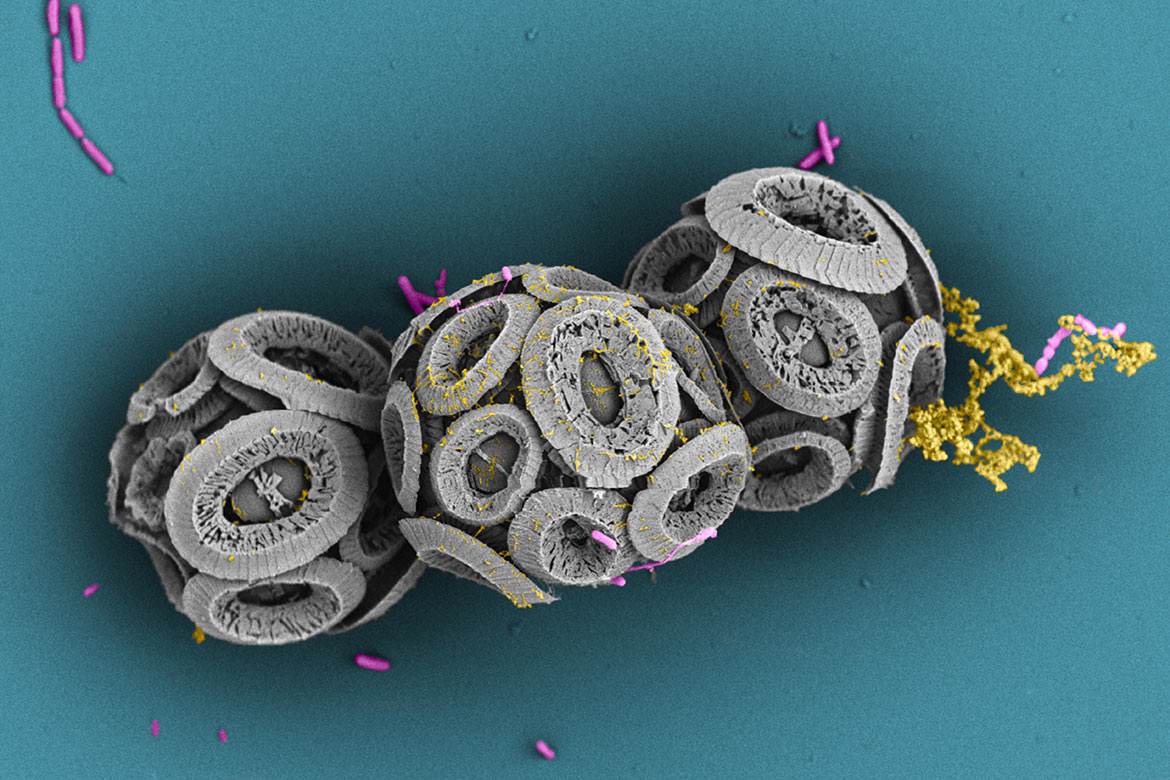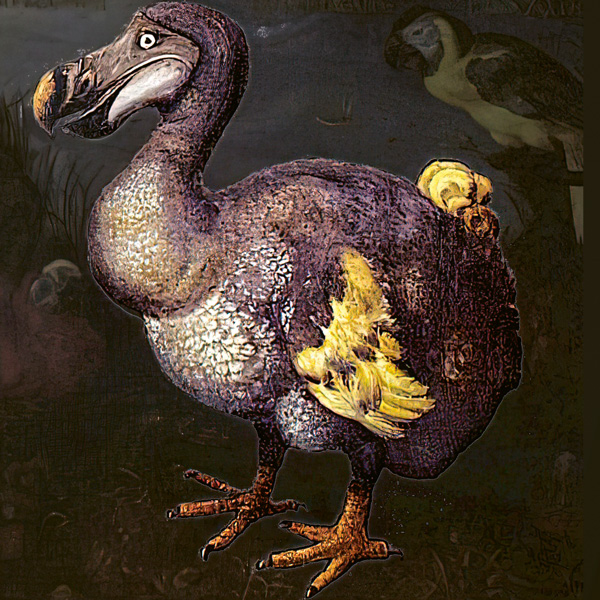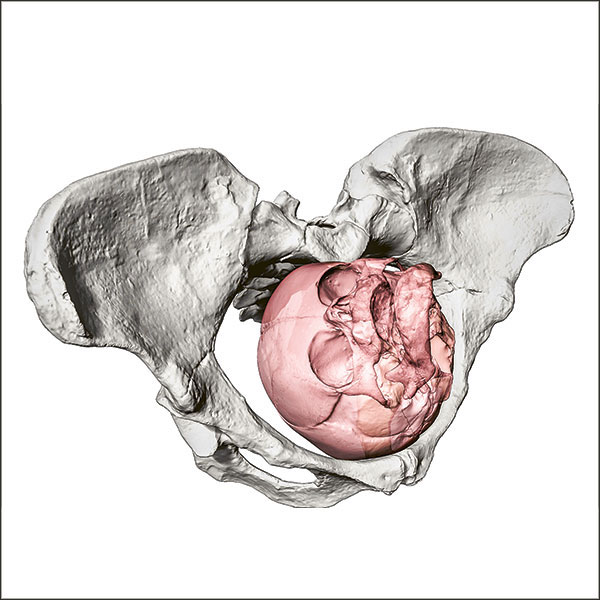IN THE PICTURE
Mystery shields
Until now, no one knew why algal cells have scales. An image is helping researchers at ETH Zurich to solve this riddle of the oceans.

Whether these grey scales protect the algae from the pink bacteria remains unclear to researchers. | Image: Sophie Zweifel and Roberto Pioli
They seem to be cruising in formation like three starships, arriving at unknown worlds after a journey through infinite space. But this flight of our imagination is perhaps not so far-fetched. The ‘pilot’ inside each ball-shaped object is a single algal cell called Coccolithus braarudii. They float in their trillions across the vast oceans around the Earth and produce hard scales made of the same material as eggshells: calcium carbonate.
These scales look like protective shields with a circular rim, but their use to the algae is far from clear. “They invest a lot of energy in producing them, but we still don’t really know why”, says Sophie Zweifel from the Institute of Environmental Engineering at ETH Zurich. Her PhD research is focused on finding this out. There are a lot of hypotheses floating around: do they protect the algae from harmful UV light, or perhaps act as funnels for useful light for purposes of photosynthesis? Are they weights to help sink the algae down into nutrient rich waters? Or do they shut out parasitic viruses and bacteria that are known to influence algal blooms? “We took this image with scanning electron microscopy to see if any bacteria are attached to the algae”, says Zweifel. And indeed they are. The colouring in this image, added by her colleague Roberto Pioli, draws our attention to the pink bacteria and some yellow sticky material around the algae. They are just under one fiftieth of a millimetre in size.
Obtaining the image was difficult, though, because the algal cultures do not fare well in the lab. “Usually, they are grown in filtered sea water”, says Zweifel, “but we don’t have that in Switzerland. So we rely on the salted water that is used for aquariums”. The effort they invest is worth it. Phytoplankton fulfil an important ecological role in the world, as they produce oxygen and capture carbon dioxide. Zweifel wants to put an end to the general ignorance about algae: “People usually think of gross sludge on the beach or the Spongebob villain. But if you take a closer look at them, you’ll see that they are really quite beautiful”.




